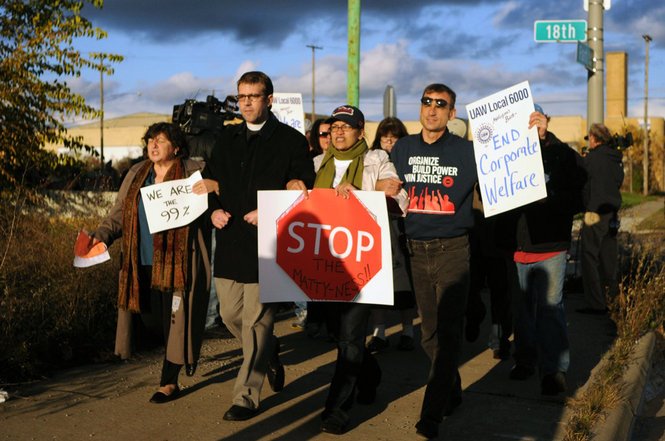The conversation starts something
like this – Me: I think you would be great to lead this project. Response:
Oh, Pastor, I just couldn’t possibly do that.
Sometimes the above response is merely
an act of humility. Yet it may also be a
natural response to deny one’s own gifts, and especially the skills and
abilities others see in us. But in Detroit , conversations
like this take on special importance. We
are a city that has been abandoned by the powers that be, where the safety of
our block is mostly up to us, and the beautification of our neighborhood
happens only on our own watch. When we
deny our own abilities, we also deny our own power.
The Bible talks about power. In Acts chapter one, Jesus is about to depart
the world and leaves the work to the few but dedicated followers who
remain. Jesus tells them that the Holy
Spirit will come upon them and they will “receive power from on high” (New
Revised Standard Version). In this case Jesus
is telling them that they will survive, come together, be sent out, and so
forth. It is known among Christians as
the beginning of the Church. Jesus could
have said a lot of things will come upon you: confidence, faith, fearlessness,
hope. Yet he said, “power.” It is an important word.
Power is the ability to get things
done. The basic foundation of community
organizing teaches that organized people and organized money, in short, power,
is the most effective way to accomplish our goals. Unfortunately we have taught ourselves that
power is a negative thing. Really, we
let others teach us such nonsense so that they can keep power for themselves. The culture of mainline Protestantism teaches
that we are to be humble, which easily translates into giving up our
power. Such teaching is dangerous,
especially to people of color, women, people of low income, the lesbian, gay
and transgender communities, and anyone who lives under a system of
oppression.
Teaching people to have less power
is safer, easier and more expected, but it is also oppressive and
destructive. Teaching less power forms
the basis of all forms of oppressive systems, including racism, classism,
sexism, heterosexism and more. Here is
what they hope we believe: In order for you to have power, others must have
less. For African Americans to have
access to higher education, it must mean they are asking people of European
descent to stop going to college. To
allow lesbian or gay people to have access to marriage or health benefits must
mean we are asking heterosexuals to redefine their own marriages. Neither example is true.
Corporations, government entities, development corporations
and more teach us in Michigan and Detroit that we are part
of the problem, not part of the solution. Power, however, is not a finite resource, and
we can have it. In fact, we do. Detroit
will turn around, and does every day, when we understand the power we have to
transform the way we function. The rules
placed upon us are only rules if we choose to follow them. Every day we must remind ourselves that this
is our community and we have the power to change it. We are the powers that be. We remind ourselves every day because each
day structures and interests are telling us we are not.

